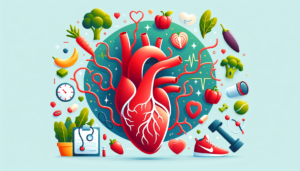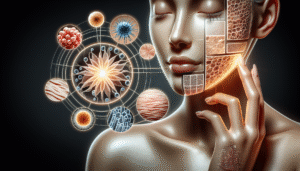Circadian Rhythm and Mental Health: The Connection
Understanding Circadian Rhythm
What is Circadian Rhythm?
Circadian rhythms are natural, internal processes that follow a roughly 24-hour cycle, responding primarily to light and darkness in the environment. These rhythms influence crucial bodily functions, including sleep-wake cycles, hormone release, body temperature, and other vital physiological processes.
The term "circadian" derives from the Latin phrase "circa diem," meaning "around a day." Essentially, these rhythms serve as the body’s internal clock, synchronizing biological processes to environmental cues. The primary regulator of circadian rhythms is the suprachiasmatic nucleus (SCN) located in the hypothalamus, which receives direct input from the eyes and adjusts the body’s clock according to light exposure.
The Key Components of Circadian Rhythm
-
Light Exposure: Natural light plays a fundamental role in regulating circadian rhythms. Bright light in the morning can advance the sleep phase, while exposure to artificial light at night can delay it.
-
Sleep-Wake Cycle: The circadian system influences melatonin production, a hormone that signals the body when it’s time to sleep. Higher melatonin levels occur in the evening and decrease with light exposure.
-
Body Temperature Variations: Body temperature fluctuates throughout the day, often peaking in the late afternoon and dipping at night, aligning with the sleep-wake cycle.
- Hormonal Regulation: Various hormones, like cortisol, which peaks in the morning, and growth hormone, which rises during sleep, are influenced by the body’s circadian clock.
Circadian Rhythm: The Link to Mental Health
How Circadian Rhythms Impact Mental Health
The connection between circadian rhythms and mental health has gained significant research acclaim. Disruption of these rhythms can lead to various mental health issues, while synchronized circadian rhythms can help maintain overall mental well-being.
-
Sleep Disorders: A misalignment of circadian rhythms often leads to sleep disorders, such as insomnia and obstructive sleep apnea. Poor sleep quality affects mood regulation, resulting in increased susceptibility to anxiety and depression.
-
Depression: Studies have shown that individuals with major depressive disorder often have disrupted circadian rhythms, leading to alterations in sleep patterns. Patients are more likely to experience symptoms such as insomnia or hypersomnia, which can exacerbate depressive symptoms. Proper alignment of circadian rhythms can improve mood stabilization.
-
Anxiety Disorders: Circadian disruption is linked to heightened anxiety levels. Individuals with generalized anxiety disorder tend to report irregular sleep patterns and insomnia. Addressing circadian imbalances can mitigate anxiety symptoms and enhance coping mechanisms.
-
Bipolar Disorder: Patients with bipolar disorder often display significant disruptions in their circadian rhythms. Sleep deprivation can trigger manic episodes, showcasing the vulnerability of mood regulation to circadian misalignment.
- Schizophrenia: Circadian rhythm disturbances are prevalent in individuals with schizophrenia. Altered sleep-wake cycles can exacerbate symptoms, including cognitive dysfunction and emotional dysregulation. Studies have indicated that regulating sleep schedules may help improve symptom management in psychiatric treatment.
Factors Affecting Circadian Rhythms
Lifestyle Choices
-
Shift Work: People working irregular hours or rotating shifts often experience circadian misalignment. This exposure alters their sleep-wake patterns, leading to fatigue, mood disturbances, and increased risk for chronic illnesses.
-
Screen Time: Excessive use of screens prior to sleep interferes with circadian rhythms due to the blue light emitted from devices, which suppresses melatonin production.
- Diet: Meal timing and food choices can influence circadian rhythms. Irregular eating patterns can disrupt hormonal balance, affecting energy levels and mood. Consuming a balanced diet at regular intervals aids in supporting overall mental health.
Environmental Cues
-
Natural Light: The intensity and timing of light exposure are crucial for regulating circadian rhythms. Spending time outdoors and exposing oneself to natural light can help reset and maintain healthy circadian cycles.
-
Darkness and Sleep Environment: Creating a dark sleeping environment with minimal light exposure promotes better melatonin production and sleep quality, crucial for mental health.
- Seasonal Changes: Seasonal affective disorder (SAD) demonstrates how changes in the amount of daylight can affect mood. Light therapy is sometimes used to alleviate depressive symptoms in individuals sensitive to seasonal changes.
Strategies for Regulating Circadian Rhythms
Sleep Hygiene Practice
-
Consistent Sleep Schedule: Going to bed and waking up at the same time daily helps reinforce a stable sleep-wake cycle, essential for mental well-being.
-
Optimize Sleep Environment: A cool, dark, and quiet sleep space can foster better sleep quality, influence melatonin production positively, and enhance overall mood.
- Relaxation Techniques: Activities such as deep breathing, meditation, and yoga before bed can help reduce anxiety and aid in achieving a calm state, supporting sleep cycle regularity.
Exposure to Natural Light
-
Morning Sunlight: Exposure to natural light shortly after waking can help reset the internal clock, ensuring proper circadian rhythm alignment.
- Limit Nighttime Artificial Light: Reducing exposure to blue light sources in the evening is crucial. This may involve using blue light filters on electronic devices or avoiding screens before bedtime.
Nutritional Considerations
-
Timing of Meals: Consuming meals at regular intervals helps regulate circadian rhythms. Eating at consistent times signals the body when to expect energy intake, supporting metabolic health.
- Quality Nutrition: A diet rich in whole foods, including fruits, vegetables, lean proteins, and healthy fats, supports mental health. Certain nutrients, like omega-3 fatty acids, vitamins D and B12, can improve mood and cognitive function.
The Role of Technology and Research
Innovations in Circadian Rhythm Research
Research into the relationship between circadian rhythms and mental health is evolving. New technologies play an essential role in monitoring and regulating circadian rhythms.
-
Wearable Devices: Devices that track sleep patterns provide insights into circadian rhythms, helping individuals understand their sleep quality and make necessary adjustments.
-
Light Therapy Devices: These tools use specific light wavelengths to mimic natural sunlight, aiding in the treatment of SAD and other mood disorders, especially during winter months.
- Apps for Sleep Tracking: Several applications help monitor sleep and provide suggestions for optimizing sleep hygiene, which can be beneficial for mental health.
Future Research Directions
Future studies are likely to explore the genetic and molecular mechanisms influencing circadian rhythms and their link to mental health more deeply. Investigating interventions to synchronize circadian rhythms as part of a comprehensive mental health treatment plan could enhance therapeutic outcomes.
Circadian Rhythms and Psychological Interventions
Cognitive Behavioral Therapy (CBT)
Cognitive Behavioral Therapy for Insomnia (CBT-I) integrates sleep hygiene principles with cognitive restructuring techniques. This approach addresses maladaptive beliefs about sleep and encourages routine establishment, ultimately enhancing circadian rhythm regulation.
Mindfulness-Based Interventions
Mindfulness practices, which focus on increasing awareness of the present moment, can help individuals better manage stress and anxiety, thereby positively influencing circadian rhythms and sleep patterns. Mindfulness meditation can foster relaxation, contributing to improved sleep quality and emotional health.
Support Groups
Joining support groups that focus on shared mental health challenges can help individuals understand their experiences concerning circadian rhythms more fully. Communicating with peers can foster a sense of community, which has beneficial effects on mental well-being.
Conclusion
The connection between circadian rhythms and mental health is a dynamic and intricate relationship. By focusing on lifestyle choices, environmental factors, and the adoption of tailored interventions, individuals can effectively regulate their circadian rhythms, leading to improved mental health outcomes.
Research in this area continues to evolve, promising new insights into how we can optimize our internal clocks for better psychological resilience. Through ongoing studies regarding light exposure, sleep patterns, and lifestyle modifications, the potential for individuals to reclaim their health through circadian rhythm alignment is boundless.








